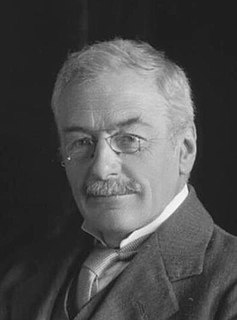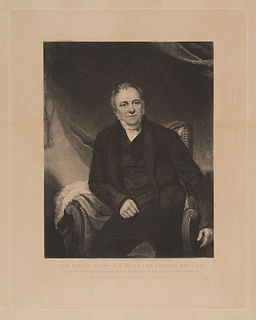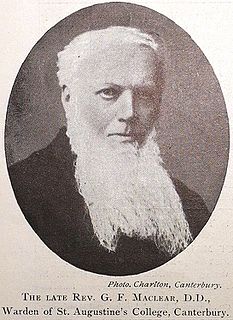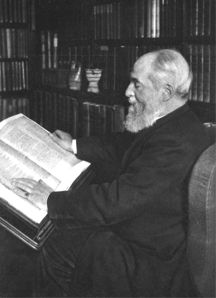Sir Charles Harding Firth was a British historian. He was one of the founders of the Historical Association in 1906.

Richard Chenevix Trench was an Anglican archbishop and poet.

Rev. Henry William Watson FRS was a mathematician and author of a number of mathematics books. He was an ordained priest and Cambridge Apostle.

Herbert Marsh was a bishop in the Church of England.

John Brown Paton (1830–1911) was a Scottish Congregationalist minister, college head and author.

John Richardson was a Biblical scholar and a Master of Trinity College, Cambridge from 1615 until his death.

Francis Crawford Burkitt was an English theologian. As Norris Professor of Divinity at the University of Cambridge from 1905 until shortly before his death, Burkitt was a sturdy critic of the notion of a distinct "Caesarean Text" of the New Testament put forward by B. H. Streeter and others.

Sir Herbert Jenner-Fust, was an English judge and Dean of the Arches.
The John Addison Porter Prize is a literary award given annually by Yale University to the best work of scholarship in any field "where it is possible, through original effort, to gather and relate facts or principles, or both, and to present the results in such a literary form as to make the product of general human interest." This award is among the highest the university confers. The prize was established in 1872 in honor of Professor John Addison Porter, B.A. 1842., and perpetuated with a subsequent gift in 1901.

The CambridgeFaculty of Divinity is the divinity school of the University of Cambridge. It houses the Faculty Library.
John Peachell (1630–1690) was an English academic, Master of Magdalene College, Cambridge, and Vice-Chancellor of the University of Cambridge at the moment when James II was aiming to impose his will on the universities.

The Warburton Lectures are a series of theology lectures held in Lincoln’s Inn, London. They were established in 1768 with money given by William Warburton, and were intended to bring young divines to the notice of London audiences. The set topic was the proof of Christianity through prophecies.
James Bailey was an English classical scholar and schoolmaster.
Sir Harold Herbert Williams was an English scholar, priest, lawyer, politician, bibliophile, and expert on the works of Jonathan Swift.

George Frederick Maclear was an English clergyman, theological writer and headmaster at King's College School, London. He was the eldest son of the Rev. George Maclear, MA, chaplain of Bedford county prison (1832–69), by his wife Isabella Ingle. Educated at Bedford School, he obtained a scholarship at Trinity College, Cambridge in 1852, receiving a BA degree in 1855, followed by a distinguished academic career. He was the nephew of Thomas Maclear, Her Majesty's Astronomer at Cape Town, and cousin to John Maclear, admiral in the Royal Navy, and Basil Maclear.

William Richardson (1698–1775) was an English academic and antiquary, Master of Emmanuel College, Cambridge from 1736.
Francis Lockier, D.D. was the Dean of Peterborough from 1725 until his death.

The University of Cambridge is a collegiate public research university in Cambridge, England. Founded in 1209 and granted a Royal Charter by King Henry III in 1231, Cambridge is the second-oldest university in the English-speaking world and the world's fourth-oldest surviving university. The history and influence of the University of Cambridge has made it one of the most prestigious universities in the world. Numerous scholarships, prizes, honors, and awards specific to the University are awarded to prospective or current students.













